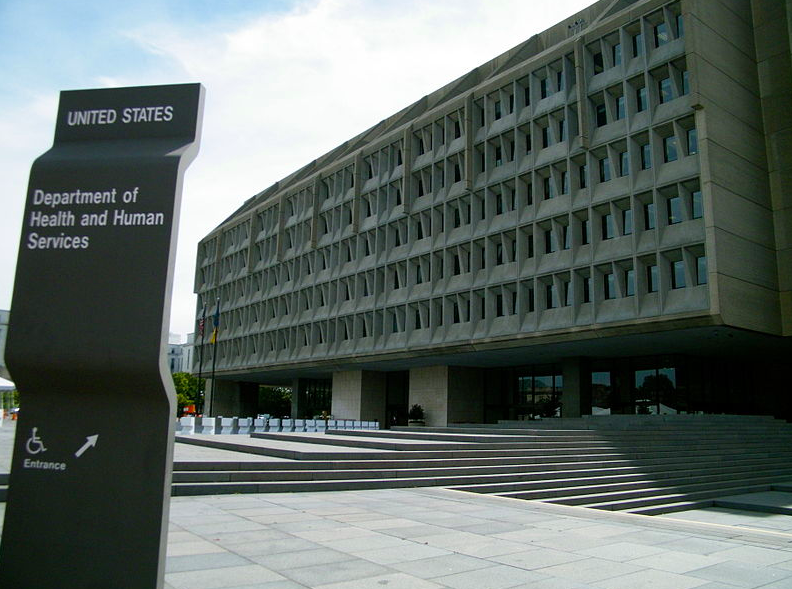
HHS Asks for Comment on Proposal to Revise Nondiscrimination Requirement in its Grants
By Dr. Stanley Carlson-Thies
The federal Department of Health and Human Services (HHS) has proposed to eliminate an Obama-administration regulation requiring its grantees not discriminate in service-delivery and employment on multiple grounds, including sexual orientation, gender identity, and religion. That regulation also requires grantees to treat same-sex marriages as valid. The latter requirement is based on the U.S. Supreme Court’s Obergefell decision (2016), but the former requirement is undergirded neither by court decisions nor congressional laws. According to the Notice of Proposed Rulemaking (NPRM) published in the Federal Register on November 19, 2019, HHS intends to rewrite the regulation to require HHS grantees to comply with nondiscrimination requirements that have been adopted into law while following all applicable U.S. Supreme Court decisions. The public comment period ends on December 19, 2019. At the same time as the NPRM, HHS announced that it will not enforce the Obama regulation before it is revised, due to irregularities in how it was adopted.
The nondiscrimination and same-sex marriage rules came into effect for HHS grants on January 11, 2017, just over a week before the close of the Obama administration. The two rules were added to several existing rules that apply to all HHS grants (45 CFR 75.300: Statutory and national policy requirements, new subsections (c) and (d)). There is no religious exemption. The nondiscrimination and same-sex marriage requirements apply not only in delivering HHS-funded services but also to the internal operations, including employment decisions, of a grantee, including a faith-based grantee.
The new nondiscrimination requirement came to very public notice early in 2019 when HHS announced that it had granted a waiver to the State of South Carolina so that Miracle Hill Ministries, a faith-based foster care program, could continue to receive HHS funding through the state despite Miracle Hill’s policy of recruiting only Christian foster care parents. Miracle Hill had been working with the state for decades, one of a variety of foster care programs. However, the organization’s view that the foster parents with whom they work are close ministry partners and thus must be Christians became illegal on the effective date of the new rules. Eventually, South Carolina Governor Henry McMaster requested that the Obama nondiscrimination requirement be set aside, noting the protections afforded religious exercise by the Religious Freedom Restoration Act, and that the law governing federal adoption and foster care funding only prohibits discrimination on the bases of race, color, or national origin. HHS granted an exception to the Obama regulation on January 23, 2019.
The Obama regulation is also part of the justification of the Michigan government for prohibiting faith-based adoption and foster care programs in the state from following their faith-based convictions about marriage and family, if they receive HHS funds through the state. The state has insisted on that prohibition even though, in 2015, Michigan adopted a law specifically to protect faith-based recruitment and placement decisions. Unlike South Carolina’s governor, Michigan’s new Democratic governor will not seek a waiver.
Besides an official request for a waiver, the only other option for a faith-based grantee or applicant has been for the organization itself to apply to HHS for a religious accommodation, citing the Religious Freedom Restoration Act. HHS’s Center for Faith and Opportunity Initiatives and the Conscience and Religious Freedom section of HHS’s Office of Civil Rights consider such requests.
The NPRM proposes to eliminate the need for such appeals by changing the regulation, and the “Notice of Nonenforcement” of the overly sweeping regulation sidelines the regulation in the meantime (but note: a future administration can easily amend this changed regulation, and a court may quickly rule that the administration must enforce the rule until it is modified).
The NPRM is simple. In place of the current long list of protected classes, some of which are not protected under federal statutes and some of the rest of which may be protected in some HHS programs but not others, HHS proposes simply to remind HHS grantees that they must abide by all statutory nondiscrimination requirements when using HHS funds. And rather than single out the Supreme Court’s same-sex marriage ruling, the amended regulation would state that HHS, and thus grantees, “will follow all applicable Supreme Court decisions.”
Public reaction to HHS’s announced action has centered on the prospect that faith-based adoption and foster care agencies will now be free to discriminate against LGBT people. However, the changed rule, like the current one, applies beyond these sensitive services to all HHS grant-funded programs. Moreover, given that in every state, LGBT people are guaranteed the right to adopt or foster, and that every state hosts a wide range of private agencies, many of which serve LGBT families, the claim that a changed rule will hinder or prohibit LGBT people or couples from offering a needed home is unsustainable.
In addition to amending the Obama rules as the NPRM proposes, a satisfactory outcome would be for Congress to adopt the Fairness for All proposal. This legislative proposal, not yet introduced into Congress, would redesign the federally funded foster care and adoption system, on the model of the federally funded child care system. In a new voucher-type system, diverse new providers would be recruited, there would be more choices, every family would be confident of finding a welcoming and supportive private agency, and more children who need a foster or adoptive home would find one. Fairness for All also proposes other ways to reconcile the multiple rights and diverse organizations that come together in federally funded programs.
In the meantime, HHS is right to stop requiring its grantees to bend to weighty requirements that Congress has not decided should be imposed.
